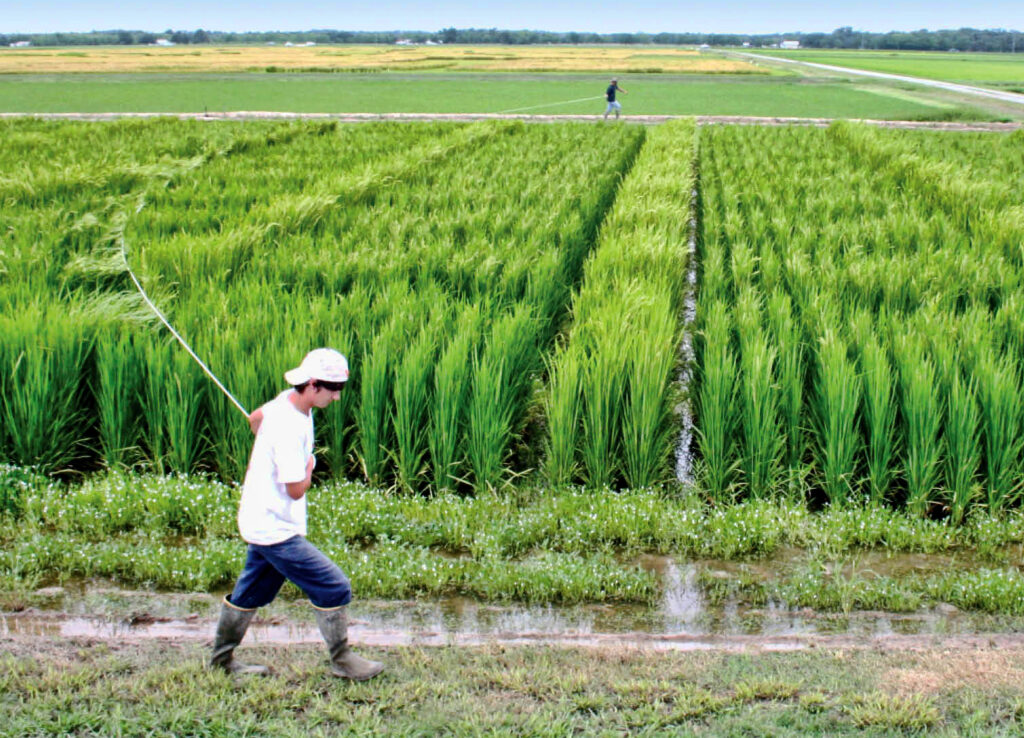
Compare with their homozygote parents, hybrid progeny normally has better performance in fields such as more biomass or higher biotic/abiotic resistance. This phenomenon named hybrid vigor or heterosis. Since the 1970s, although the application of heterosis in crops especially in hybrid rice had dramatically improved the yield of rice productivity, the genetic mechanisms behind heterosis remain unclear. For rice breeder, how to construct hybrid parents to achieve better heterosis in hybrid rice is still a problem.
Previous studies marked the heterotic loci or heterotic quantitative trait loci (QTLs) with positive/negative effects on heterosis. Thus guided the rice breeder to construct heterosis through fixing loci with a positive effect and removing loci with a negative effect. Although those heterotic QTLs were selected to explain or construct heterosis, where and how those loci occurred or accumulated is uncertain. Therefore limiting the further utilization of heterosis.
A team from Peking University, Beijing, China, published an article in PNAS on March 3, 2020, which brings genetic insights into hybrid rice heterosis and might lead to improved breeding of parental lines that produce superior hybrids (Lin et al. 2020). Two populations of F1 hybrid rice were generated by commercial hybrid parents in present. In total ~2,000 hybrids phenotype were recorded, combine with parents resequencing and ~4,200 Asian rice landraces genome database to reveal divergent selection among the subpopulations shaped different heterotic alleles in different subpopulations.
By analyzing genetic variations between male and female parents, this study has shown that different levels of genome introgression of hybrids parents from rice subpopulations related to heterosis in hybrids, which to some extent can explain the variation in hybrids phenotype such biomass and yield. And through tracing the origin of heterotic alleles, this study revealed the mechanisms underlying how heterotic loci were developed in hybrid rice and how hybrid performance was improved with intensive breeding efforts.
As mentioned in this study: “Effect-based selection toward heterotic loci during hybrid breeding reduced the rate of heterozygous depression loci but improved the rate of positive heterotic loci in hybrids, resulting in improved hybrid performance”, heterosis can be built by the accumulation of positive heterotic loci in hybrids. And through the parental construction strategy breeder applied nowadays, although hybrids are able to obtain the positive heterotic loci from parents to show superior performance, the strategy contained only a part of the heterotic loci containing beneficial alleles from the two distinct genomes. Thus this strategy is unable to exploit the full heterotic potential.
Suggested that there is room for improvement of heterosis in hybrid rice by increasing the proportion of positive heterotic loci, from other subpopulations, of hybrids parents. Specifically, “introducing divergently selected regions to parents, improving the proportion of the exogenous genome, then removing hybrid depression loci and fixing heterotic loci would promote the accumulation of additional superior alleles.”
This work provides a possible way for the utilization of heterosis. But for heterosis, there will be more stories to tell, and this article is a meaningful conclusion, also is a new start point.
This work carried out by the team of Prof. XingWang Deng, Peking University, Beijing, China; and was supported by National Key Research and Development Program of China Grants 2016YFD0100801 and 2016YFD0101104; National High Technology Research and Development Program of China Grant 2014AA10A602; National Science Foundation of China Grant 31871706; and the Peking-Tsinghua Center for Life Sciences, Peking University.